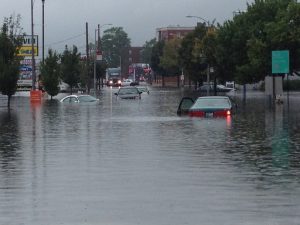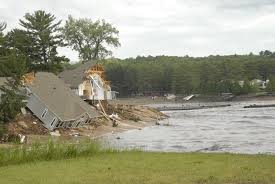How Drone Technology impacts the Insurance Industry.

Many new technologies impact many different industries on a daily basis. As long as there has been commerce taking place, there have been new and better technologies that have come along to shake up things for most industries. No matter if it was Benjamin Franklin discovering electricity in the 1700’s, Alexander Graham Bell inventing the telephone in the 1800’s, the Wright brothers inventing the airplane in the 1900’s or Mark Zuckerberg inventing Facebook new technology has been developed longer than the United States of America has been a country. Companies that adapt to technological change are the companies that succeed in the long term. Today, many technologies are changing our lives at a dramatic pace. None more apparent than drone technology.
Drone technology is advancing at a very rapid pace. As the technology advances the capability of the drone is growing and the price to enter the market place is dropping dramatically. Because of this people are buying up drones at an enormous pace. What far too many of these drone owners do not realize at this time is the type and amount of risk they are taking by operating a drone. This applies whether the drone is being used for commercial or personal use and whether the person is on their own property or on the property of a third party. Here are a few ways that drones will impact the insurance industry now and in the future.

What industries are using drones to do business?
Construction Industry – In the Construction Industry business owners can use drones to analyze a property in ways that were not imaginable just a decade ago. They also can aide construction companies in the repair of facilities after an accident or natural disaster.
Insurance Industry – The Insurance Industry is using the technology to examine properties after a natural disaster to get a jump start on which properties need the most examination and at what part of the property. In the future drone technology may be able to aide in the prevention of fraudulent insurance claims by taking pictures of insurable assets periodically throughout the policy period.
Real Estate – Real Estate agencies are able to get an in-depth look a the properties they are working with in new ways. They can use this technology to give their clients an even better idea of the property they are purchasing or selling.
TV Media – Drones will give the television industry the ability to get to even more places when covering live footage or it can allow a camera to get to a new place that was not possible before. Laws and legislation over the next few years will determine how much this technology will be allowed in the media.
Search and Rescue – Search and Rescue groups can use drones in some scenarios instead of helicopters. This will put the operator of the helicopter in danger less often and will allow the search and rescue teams to get to new places that a helicopter cannot access.
Beneficial impacts of the drone industry on insurance.
Drones and aerial photography can speed up the processing time for claims. With the use of drones the time to process a claim may move from a few weeks to a few days to eventually a few hours. Because of this quick turn around in processing, companies in the insurance industry will be able to hire less employees or it can free up more employees to service customers in different ways. This will increase the level of service they are able to provide and lower the price they are forced to charge customers for coverage.
Fraud Prevention is another beneficial part of the use of drone technology on the insurance industry. The main way drones can aide in preventing fraud is by allowing insurance carriers to more easily monitor what a property looks like throughout the period of the policy. If they can fly a drone out to observe your property once a month or even once a quarter it is more likely to be able to prevent people from filing fraudulent claims after a natural disaster like a hurricane or a tornado. This is a prime time for property owners to claim damage to their property was caused by the natural disaster when in reality the damage occurred much sooner and was not a covered loss.
Challenges drones present for the Insurance Industry
Start-ups will pop up that challenge the current business model. A few businesses have already poppped up to serve drone users in ways the traditional insurance industry is not able or prepared to.
Verfily and Dart Drones are two such companies that have already formed to fill a void in the drone market. Verifly is a that offers drone users the opportunity to buy insurance coverage for a small amount of time when they will be using the technology. When the drone is not in use they do not have to pay for coverage of the product. This is especially beneficial to businesses who want to use the technology, but may use the drone only a few times a month or even only a few times a year. Dart Drones is a business that sprung up because there currently is no industry standardized license for operating a drone. This business offers classes and certifications on the proper use of a drone. This will allow a business owner to show his insurance company the people using the drones are trained professionals and it is a way for the employee to show they are prepared to operate the drone for the needs of the business.

Like many things in life, every problem presents an opportunity. This is very much the case in the drone industry. Successful insurance industries in the future will be the companies that can harness technologies like drones for their benefit and use the technology to gain a new share of the market they did not have previously. The companies who are the quickest to adopt this technology and offer coverage for it users will position themselves to be the leaders in this potentially high growth portion of the insurance sector.







 This statement is not true. If you are using your car for business purposes, it is not completely covered under your personal insurance policy. The personal insurance policy will pay to cover the damages to your car, but it will not cover your liability to third parties. That liability falls on the shoulders of the business. For that reason, you will need to secure either a commercial auto policy or a hired and non owned auto policy.
This statement is not true. If you are using your car for business purposes, it is not completely covered under your personal insurance policy. The personal insurance policy will pay to cover the damages to your car, but it will not cover your liability to third parties. That liability falls on the shoulders of the business. For that reason, you will need to secure either a commercial auto policy or a hired and non owned auto policy.






